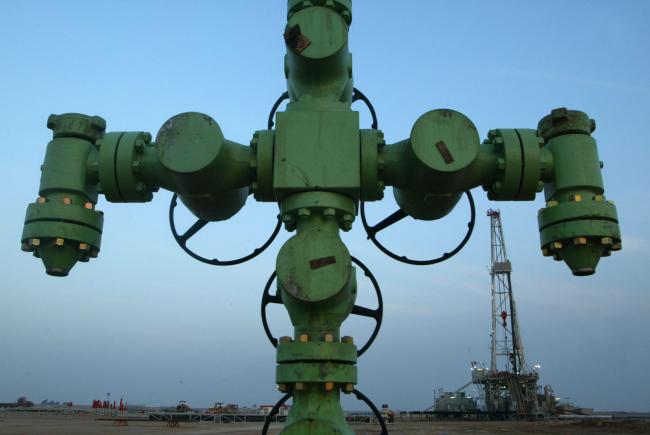(Bloomberg) -- Oil’s plunge has taken prices below the level all but one OPEC country needs to square their 2019 budgets, increasing the risk of supply disruptions from economic dislocation and social unrest.
At today’s Brent price of $55 a barrel, only uber-wealthy and sparsely populated Kuwait will be able to make ends meets next year. OPEC giants Saudi Arabia, Iraq and Iran need much higher prices. So do the nations that have suffered disruptions in the past when prices have fallen: Libya, Venezuela and Nigeria.
As prices have dropped, the market has focused on the impact on U.S. shale growth next year, but recent history points to rising risks within the cartel. As oil revenues fall, governments could soon face social unrest due to slower economic growth and higher unemployment. They’ll also have far less money to invest in the petroleum sector to keep output up.
"At current prices, too much attention on shale, not enough on OPEC," said Olivier Jakob, managing director at Swiss consultant Petromatrix GmbH.
In late 2015, when oil prices plunged after Saudi Arabia imposed a "pump-at-will" policy that flooded the market, social trouble spread across OPEC, sending supply outages to a peak of 2.8 million barrels a day -- though the number was exacerbated by Western sanctions on Iran. Lower prices accelerated the decline of Venezuela’s oil industry and saw the re-emergence of violent conflict in Nigeria’s main crude-producing region.
Since then, even with new U.S. sanctions on Tehran, OPEC supply outages have fallen to less than 1.7 million barrels a day, according to Bloomberg News calculations based on data from the U.S. Energy Information Administration.
Despite the sharp fall over the last two and a half months, oil prices remain well above the depths of 2015-16 crisis. Brent crude, the global benchmark, fell on Thursday to a low of $54.65 a barrel, compared to $27.10 in January 2016. Brent traded as high as $86.74 in early October. In contrast to the 2015-16 period, when most OPEC nations were boosting production, the cartel has just agreed to cut supply.
Of all OPEC nations, only Kuwait can cover its budget with oil prices below $60 a barrel, according to data from the International Monetary Fund. Qatar, which is leaving the cartel on January 1, would be able to break-even at just $44 a barrel. Libya and Algeria need prices around $100 a barrel.
Saudi Arabia, which announced its 2019 budget this week, is betting on higher oil revenues to finance a third consecutive year of fiscal loosening. Jason Tuvey, analyst at Capital Economics, a London-based consultancy, said the Saudi budget "appears to be premised on prices averaging $80 a barrel."
